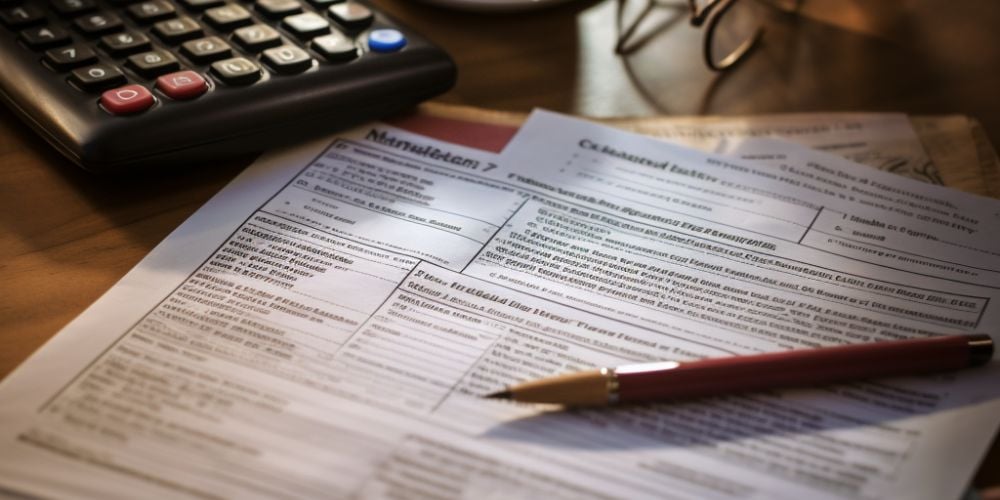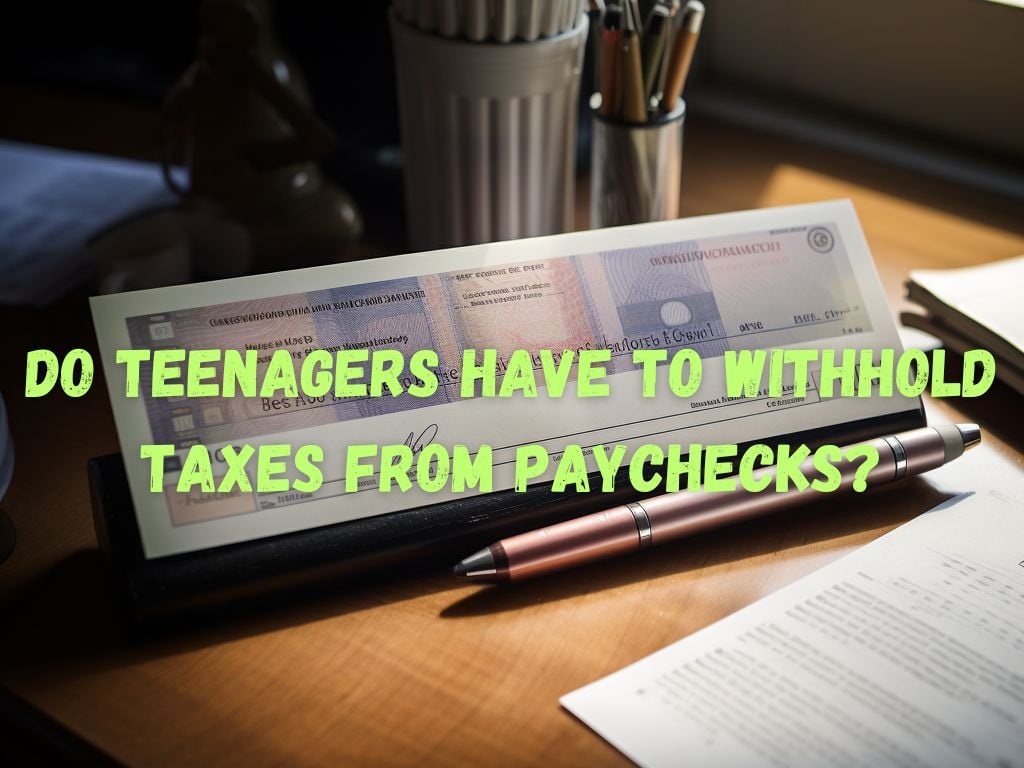As a teenager, getting your first job is an exciting step towards independence and financial freedom. However, with that newfound income comes responsibilities and potential obligations, including taxes.
One common question among working teenagers is whether they need to withhold from their paychecks and pay taxes.
Paycheck withholding is designed to ensure that individuals pay their taxes throughout the year rather than waiting until tax season. So, do teenagers have to withhold taxes from paychecks?
In this article, we will explore the rules and requirements for teenagers when it comes to paycheck withholding and taxation.
Do Teenagers Have to Withhold Taxes from Paychecks?
The short answer is that it depends on the teenager’s income and the job they have. As a general rule, anyone earning income is required to pay federal taxes.
However, the minimum income threshold for filing taxes varies depending on several factors, including age, filing status, and types of income.
For the majority of teenagers, if their yearly earnings are below a certain threshold, they may not have to file taxes or withhold from their paycheck.
For tax year 2023, if a teenager’s earned income is less than $13,850, they do not have to file federal income tax returns. This threshold may also change each year, so it’s essential to stay current with tax regulations.
However, suppose a teenager earns more than the minimum income threshold or has multiple sources of income. In that case, they may need to withhold taxes from their paychecks to avoid owing taxes and penalties at the end of the year.

Understanding W-4 Forms and Exemptions
One crucial aspect of paycheck withholding and taxes is completing a Form W-4 when starting a new job. A W-4 form tells the employer how much tax to withhold from an employee’s paycheck, based on the number of exemptions claimed.
An exemption is essentially a deduction from the amount of taxes withheld, which reduces the amount taken from the paycheck. It represents the number of jobs held, dependents in the household, and more.
As a teenager, completing a W-4 form may seem daunting, but it’s essential to fill it out correctly to avoid over or underpayment of taxes.
Generally, the more exemptions claimed on a W-4 form, the less tax is withheld from the paycheck.
However, if too many exemptions are claimed, the employee may owe taxes and penalties at tax time, so it’s essential to strike a balance.
For teenagers who are dependents, claiming themselves as an exemption may not be possible, as they are likely claimed as a dependent on someone else’s tax returns.
This scenario may influence the number of exemptions they claim on the W-4 form.
Exemptions and Rules for Teenagers
As previously mentioned, the minimum income threshold for filing taxes is $13,850 for the tax year 2023.
However, there are some exceptions and rules that teenagers should be aware of, relating to their tax obligations.
For example, teenagers who are self-employed may have different tax requirements. They may need to file a Schedule SE tax form and pay self-employment taxes in addition to income tax.
Additionally, teenagers may be subject to other taxes like FICA, which includes Social Security and Medicare taxes, and state and local taxes.
Another exemption to be aware of is the Household Employee exemption. Suppose a teenager is hired to work as a household employee, such as a nanny or lawn care worker.
In that case, their income may not be subject to income tax withholding, but the employer may be required to pay payroll taxes for Social Security and Medicare.
Benefits and Drawbacks of Withholding from Paychecks
While the idea of withholding from a paycheck may seem frustrating, it can also have benefits for teenagers.
Voluntarily having taxes withheld helps spread the tax burden throughout the year, making it easier to manage taxes and budget accordingly.
However, there may also be some drawbacks to withholding taxes from a paycheck, especially for teenage workers with limited income.
Over-withholding can result in lower net pay, which can be challenging to manage for those living paycheck to paycheck.
Additionally, if a significant portion of the paycheck is withheld, teenage workers may miss out on opportunities to save or invest a portion of their income.

Frequently Asked Questions
What should a teenager claim on a W-4 form?
The number of exemptions claimed on a W-4 form depends on various factors like dependents, other forms of income, and more. Generally, a teenager should consult with a parent or guardian to determine the correct number of exemptions.
Are minors exempt from withholding taxes?
No, minors are not automatically exempt from withholding taxes. However, for tax year 2023, if a teenager’s earned income is less than $13,850, they do not have to file federal income tax returns and may not need to have taxes withheld from their paycheck.
Should my teenager claim zero or one withholding allowance?
The number of exemptions claimed on a W-4 form varies, and the correct number depends on several factors. A tax professional or financial advisor can help the teenager determine the appropriate number of exemptions.
Do minors have taxes taken out of their paycheck?
Yes, minors may have taxes taken out of their paycheck just like any other worker. Taxes are withheld to ensure that the individual pays taxes throughout the year rather than waiting until tax season.
Conclusion
Understanding tax obligations for teenage workers is essential to avoid over or underpayment of taxes.
While the minimum income threshold for filing taxes is $13,850 for the tax year 2023, there may be exemptions or rules that apply to individual cases.
Completing a W-4 form correctly and claiming the appropriate number of allowances can help ensure that taxes are withheld accurately from the paycheck.
Finally, it is important to consult with a tax professional or financial advisor for advice on tax issues and planning for tax responsibilities as a teenager.


 Tags:
Tags:










